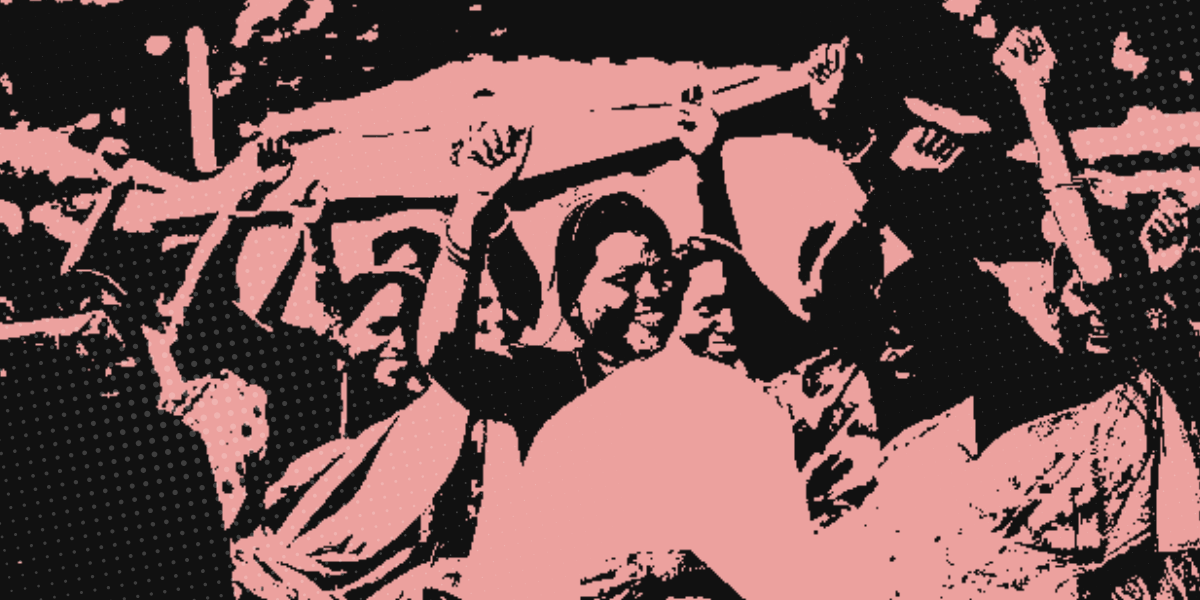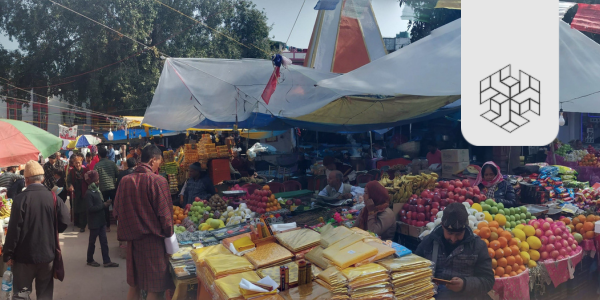Initiated by the State Poverty Eradication Mission (SPEM) of the Government of Kerala in 1998 and celebrating its Silver Jubilee this year, Kudumbashree stands as an exemplar of community-based poverty eradication and women’s empowerment at the grassroots level in Kerala, India. The organisational model is centred on establishing community-based micro-enterprises principally led by women, thereby offering multifaceted opportunities for skill acquisition, financial autonomy, and social mobility.
With over 46 lakh members, Kudumbashree is considered one of the world’s largest networks of women. It has grown into the state’s most substantial social capital1, empowering women through their engagement in broad community networks to access benefits, create solutions, and enhance their societal and economic roles while fostering solidarity and resource-sharing to strengthen their collective capacity—addressing community issues and personal challenges.
The three-tiered framework of Kudumbashree is as follows:

Source: Kudumbashree.org.in
This system engages millions of women statewide, encouraging their active involvement in local self-government bodies to create and implement strategies focused on eradicating poverty, promoting women’s empowerment, and fostering economic progress in their areas. It emphasises helping women become financially independent by encouraging skill development and making resources and credit more accessible. Despite the commendable impact it makes on the lives of millions of women within the state, substantive systemic and social impediments may lessen the program’s overall effectiveness if left unaddressed; this commentary aims to highlight such existing obstacles.
Societal Norms, Patriarchal Barriers and Caste-Class Disparities
Neo-Savarna women in Kerala, despite being educated, often tend to uphold rigid gender norms that consider women to be the moral custodians of the household, embodying purity, piety, and domesticity. She discusses how Kerala society is deeply patriarchal in the context of the RTW campaign2; the norms dictate subservience and also assign women the role of cultural gatekeepers. A woman’s decision to join the labour force in Kerala is not just influenced by the household’s financial situation but also by intra-household power dynamics and gender roles that are established both within and outside of the home. The social institutions that drive women out of the workforce are typically stronger than the opportunities that draw them in through experience and qualifications.
While Kudumbashree offers flexibility and proximity, allowing women to work at convenient times, the traditional role of the primary caretaker of the family assigned to them often clashes with their duty to take care of the home and family, a role that many husbands still expect them to fulfil exclusively. This often dissuades women from diverging from traditional familial roles and inhibits their full participation in Kudumbashree enterprises. The feminist critique discusses how Kudumbashree being ‘status-quoist’ makes the flexibility it provides become more of a compulsion than a choice. The disproportionate burden of household responsibilities that women shoulder coerces them into completing household chores before leaving for work and returning from the job only to resume these chores.
One other primary obstacle that restricts young mothers is childcare responsibilities. Women often achieve full engagement in Kudumbashree activities only as their children grow older. Domestic responsibilities, at times, are so overwhelming that committing to external work becomes impractical despite potential financial empowerment. Traditional gender roles limit women’s mobility and work options, reinforcing broader social norms that dictate acceptable roles and further constrain their choices.
Kudumbashree members also face challenges that differ based on their caste and class. Structural disparities like caste and class are of minimal concern in Kudumbashree. But there are, in fact, differences in the experiences of women based on their caste and class. Dalit women face obstacles in accessing targeted upskilling programs due to low daily allowances. The financial burden of losing wages and transportation costs makes participation almost impossible, leading them to opt for lower-paying jobs. This issue is often misconstrued as a lack of interest or motivation, diverting attention from the systemic issues at hand. Dominant-caste Below Poverty Line (BPL) women align with the oppressive forces of caste hierarchy, distancing themselves from their oppressed-caste counterparts. This reinforces the othering of Dalit women, compromising the potential for collective action and solidarity.
Challenges from the Higher Authorities
In addition to systemic barriers, women engaged in Kudumbashree encounter challenges from higher authorities. The “Back to School” by Kudumbashree aims to successfully re-engage 46 lakh women in educational settings for skill development and learning, helping them enhance their literacy and educational status. While this program can help women in many ways, recent stipulations that the participation of women in Kudumbashree is mandatory, failing to attend which would result in withholding of loans and other benefits, were coercive.
The Kudumbashree ‘Janakeeya Hotels’ that became part of the ‘Hunger-Free Kerala’ campaign are now grappling with an acute financial crisis due to the withdrawal of government subsidies. Some hotels are in danger of going out of business due to the rising prices of food and gas and operational expenses like rent and utilities. Workers argue that the current policy measures will exacerbate the situation instead of addressing financial challenges.
Kudumbashree’s definition of political empowerment reflects the complex interplay between agency and institutional restraints. The project aims to provide women with positions of participation through a three-tiered electoral system regulated by the state, but its effectiveness is restricted since it cannot break free from the influence of mainstream politics. Kudumbashree’s institutional foundation, rooted in civil society, aimed to operate independently of political influence. However, political interference, particularly in elections, has shifted women from proactive agenda-setters to predominantly passive actors. This has been especially true for women who are being courted by political bodies and have prior experience in public governance. The political involvement primarily benefits dominant-caste women aligned with established parties, contrary to the program’s original goal of fostering unity among all Kudumbashree members.
The infiltration of political parties individualises politics, undermining solidarity and dividing the group, leading to preferential treatment and weakening the program’s social empowerment objectives. Elected Kudumbashree women often face disrespect in their roles, with their contributions marginalised and, at times, completely undervalued during decision-making processes. Gender bias further marginalises their ideas, and instances exist where these elected women are compelled to defer to decisions made by their predominantly male spouses in Panchayats, eroding the program’s initial vision.
Possible suggestions
Deeply rooted societal norms hinder women’s full participation in Kudumbashree; targeted awareness campaigns are crucial in challenging and redefining these constraints by emphasising women’s financial independence and social mobility3, promoting a shift in social acceptance of women stepping out of traditional roles.
Offering more inclusive, specialised training programs that consider the unique needs and financial limitations of women from marginalised castes and classes is pivotal. Financial incentives like higher daily allowances and transportation subsidies could encourage higher attendance rates among these women. However, addressing economic barriers alone is insufficient. Community dialogues must be initiated to challenge and dismantle caste-based prejudices to foster a greater sense of solidarity among Kudumbashree members.
Though well-intentioned, the ‘Back to School’ initiative should be improved to address criticism regarding its inflexibility and high-handedness, emphasising the necessity to enhance transparency and accountability in policy formulation to avoid authoritarian measures that can discourage participation.
A comprehensive reassessment of the subsidy structures is urgent to evaluate the financial sustainability of Kudumbashree enterprises like Janakeeya Hotels, and alternative funding sources should be explored to ensure these enterprises’ financial viability.
Kudumbashree has had a significant impact on women’s empowerment in Kerala. Nevertheless, there are still several systemic and social issues. The initiative’s full potential, which goes beyond economic upliftment to include the development of a more fair societal paradigm, must be realised by addressing these obstacles with nuanced and practical tactics.
Notes
1 As defined by Putnam (1993: 35-48), “Social capital refers to features of social organisation, such as networks, norms, and trust that facilitate coordination and cooperation for mutual benefit.”
2 In response to a Supreme Court case filed by women’s groups demanding the right to visit the Sabarimala temple, a group of female devotees of the Hindu deity Ayyappan started the “Ready To Wait” campaign in September of 2016. The campaigners asserted their willingness to respect the traditions regarding entry to the Sabarimala temple.
3 It is related to equality of opportunity which can be quantified in terms of earnings, money, or social status and can also be interpreted to include other aspects of well-being including education and health.
Author Bio: Sandra Sreekumar (she/they) is a BTech Computer Science Graduate with three years of work experience. In the pursuit of exploring her other interests, she is now pursuing the Young India Fellowship at Ashoka University. Her major interest areas are Gender and Sexuality. Alongside, she harbours a keen passion for both music and fashion.
Project Overview:
Sandra is a fellow of Ashoka University’s Young India Fellowship. As a requirement of the fellowship, fellows closely collaborate with an organisation for 8 months through the Experiential Learning Module. During this time, they gain hands-on experience and actively contribute to the organisation’s project requirements. At SPRF, Sandra and other fellows are engaged in three research projects focusing on Climate Resilience, Governance, and Grassroots Women’s Leadership.






